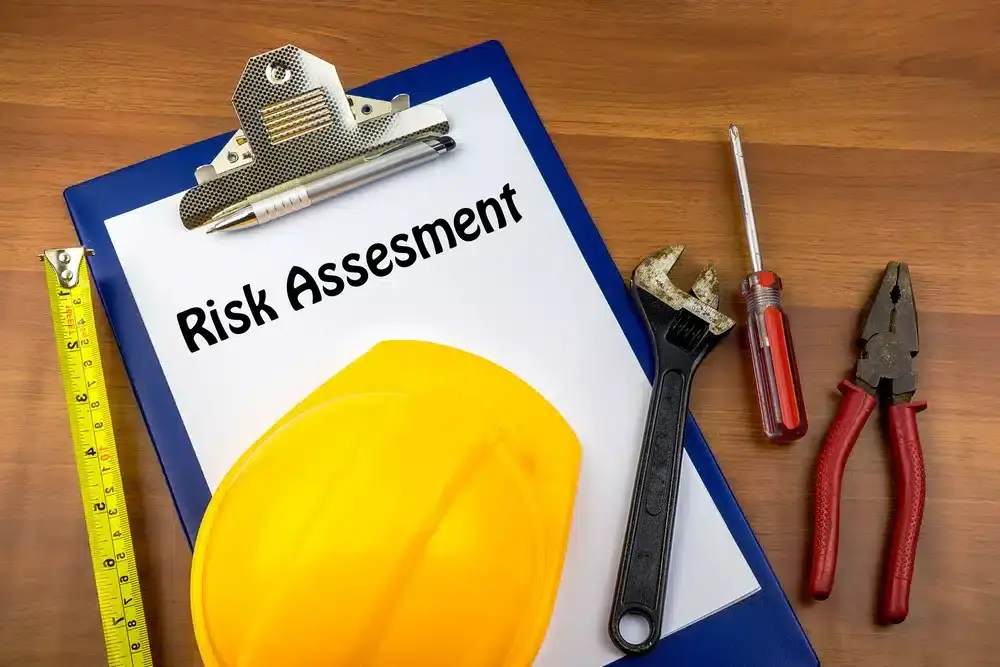When it comes to protecting your business and ensuring the completion of tasks, surety bonds may be the unsung hero you never knew you needed. These legally binding agreements play a crucial role in various industries, providing peace of mind for business owners, clients, and government agencies alike. Curious about what surety bond is, how they work, and why they’re so essential? Dive into this comprehensive guide, and discover the world of how surety bonds work and their manifold benefits.
Key Takeaways
- Surety bonds are legally binding agreements between three parties that guarantee the completion of a task, providing financial protection and versatility across multiple industries.
- Different types of surety bonds involve contract, commercial and court surety bonds with varying functions and applications.
- Surety bond costs depend on various criteria such as credit score or previous history while offering businesses guarantees for project completion, access to capital resources & protecting taxpayer funds.
Understanding Surety Bonds: Definition and Purpose

Surety bonds are legally binding agreements between three parties that guarantee the completion of a task, protecting the obligee from financial loss if the principal fails to fulfill their obligations. They are often used in the construction industry, where contract bonds ensure that contractors complete projects according to the terms agreed upon.
But what makes surety bonds unique is their versatility – they are not limited to construction contracts. In fact, their applications extend to various other industries, such as licensing, court cases, and even government contracts.
Appreciating the function of surety bonds requires a grasp of the roles of the three parties involved: the obligee, the principal, and the surety company. Each party contributes significantly to the bond’s purpose of guaranteeing successful task completion and shielding the surety bond protects the obligee from possible financial loss.
The Three Parties Involved
The obligee is the party protected by the bond, typically a client or a government agency, and is entitled to compensation if the principal fails to fulfill their responsibilities. The principal, on the other hand, is responsible for fulfilling the obligations of the surety bond and must purchase the surety bond protect themselves and be held liable if they fail to meet their obligations.
And finally, the surety – typically an insurance company – provides the to get a surety bond and guarantees the performance of the principal.
In the case of a construction project, the project owner (obligee) requires the contractor (principal) to secure a surety bond from an insurance company (surety). This surety bond work serves as a form of financial security, guaranteeing that the contractor will complete the project according to the agreed-upon terms.
If the contractor fails to fulfill their obligations, the surety company steps in to pay the project owner, who can then use the funds to hire a new contractor or complete the project themselves.
Common Uses of Surety Bonds

Surety bonds are commonly employed in various industries and scenarios, providing an extra layer of protection and assurance for those involved. In the construction industry, for instance, surety bonds are often required to guarantee that contractors complete projects according to the terms of their contracts. Certain professionals, such as auto dealers, licensed contractors and freight brokers, are mandated by government agencies to have license and permit bonds in order to obtain their respective licenses. This is a condition for them to be able to continue with their profession. These surety bonds provide serve as financial guarantees that the professionals will operate in accordance with applicable laws and regulations.
In judicial proceedings, surety bonds are used to guarantee the adherence to court orders and protect against monetary exposure. From construction projects and licensing requirements to court cases, surety bonds play a vital role in ensuring the successful completion of tasks and safeguarding the interests of all parties involved.
Diving into Different Types of Surety Bonds

While the concept of a surety bond may seem straightforward, there are various types of surety bonds, each tailored to serve a specific purpose. The three main categories of surety bonds are contract surety bonds, commercial surety bonds, and court surety bonds.
We shall delve into each of these categories, shedding light on their unique functions and applications.
Contract Surety Bonds
Contract surety bonds are a bond form a cornerstone of the construction industry, guaranteeing the performance of a contractor and ensuring that projects are completed according to the terms of the contracts. There are three main types of contract surety bonds:
- Bid bonds: ensure that contractors submit serious bids and follow through with their contractual obligations if their bid is accepted.
- Performance bonds: guarantee of completion by the contractor the project according to the terms of the contract.
- Payment bonds: ensure that subcontractors and suppliers are paid for their work and materials.
Performance bonds ensure contractors complete projects as agreed, while payment bonds guarantee payment to subcontractors, suppliers, and laborers. In this context, a bid bond serves as an additional layer of security for project owners, similar to a payment or performance bond itself.
The Small Business Administration (SBA) can provide guarantees for certain types of contract surety bonds, helping small businesses compete for government contracts. Should a contractor fail to meet their obligations, the contract surety bond company is responsible for either securing another contractor to complete the project or reimbursing the project owner for any financial loss incurred.
Commercial Surety Bonds
Commercial surety bonds serve as a guarantee that businesses will adhere to applicable laws and regulations. These bonds are often required by federal courts, federal government or bodies, financial institutions, and private corporations as part of the licensing process. Surety bonds are often used commercially in a variety of situations. Examples include license and permit bonds, court bonds, and fiduciary bonds..
Licensed contractors, automobile dealers, lottery-ticket sellers, liquor stores, notaries, and other licensed professionals are typically the principals that necessitate a commercial surety bond. For instance, auto dealers and mortgage brokers may be required to secure a commercial surety bond to ensure they operate in compliance with state and federal regulations, protecting the public interest.
Court Surety Bonds
Court surety bonds, as the name suggests, are utilized in the context of court proceedings and serve as a financial protection against potential losses incurred during the process. These bonds are commonly used by plaintiffs, defendants, and estate administrators to ensure they adhere to the conditions of a court order.
For example, a court surety bond may be required of an estate administrator to guarantee they carry out their court-ordered duties in a faithful manner. Court surety bonds essentially provide a safety net, ensuring that parties involved in court cases fulfill their legal obligations and protect the interests of all parties involved.
How to Obtain a Surety Bond

Obtaining a surety bond may seem daunting, but the process is relatively straightforward. The first step is to contact a qualified insurance agent or broker, who will guide you through the application and underwriting process. The underwriting process involves evaluating various criteria, such as:
- the business owner’s credit score
- financial statements
- previous bond history
- moral character
Keep in mind that the cost of a surety bond generally falls between 1% and 10% of the total bond amount, influenced by the bond amount and the principal’s financial health. Once the bonding process is complete, you will receive a copy of the surety bond via email, and the original surety bond definition itself will be mailed to you.
Factors Affecting Surety Bond Cost
Several factors influence the cost of a surety bond. The contract amount and the principal’s financial standing are the primary factors that determine the cost of a surety bond, which typically ranges from 0.5% to 3% of the contract price. During the underwriting process, the surety bond producers and underwriters consider various aspects when assessing a contractor. These include their character, cash flow, credit score and work history. All of these elements combine to form an overall picture of the contractor’s standing..
Keep in mind that poor credit can inflate the cost of a surety bond. For example, if a contractor has a substandard credit score, the surety bond type or underwriter may raise the premium for the bond. Other factors that can influence an individual’s potential to secure a surety bond include the loss of business assets and prior bond claims against the individual.
Benefits of Surety Bonds for Businesses

Surety bonds offer numerous advantages for businesses, including:
- Ensuring project completion
- Safeguarding tax dollars
- Stimulating innovation
- Providing contractors with essential resources
For instance, surety bonds guarantee that contractors fulfill their agreements to complete projects on time and within budget, protecting taxpayer funds in the process.
In the event that a contractor fails to complete the project, maintenance bond of the surety will cover the costs of completion, thus protecting the interests of the project owner and the taxpayers.
Moreover, surety bonds enable contractors to:
- Access capital and resources that would not be available to them otherwise
- Pursue more innovative projects
- Access resources that can help them complete their projects efficiently and cost-effectively
The benefits of surety bonds extend beyond the construction industry and apply to a wide range of businesses, ensuring adherence to regulations, financial risk and protecting public interest.
Navigating Surety Bond Requirements by State and Industry

Given the varying surety bond requirements across states and industries, it is imperative for businesses to understand the specific requirements relevant to their circumstances. For example, auto dealer bonds, freight broker bonds, and Employee Retirement Income Security Act (ERISA) surety bonds exist are required by state regulations, depending on the business circumstances.
For compliance with state regulations and to circumvent potential legal issues, businesses should refer to the regulations and guidelines of the state where they operate. By understanding the specific surety bond requirements that apply to your business, you can take the necessary steps to secure the appropriate bonds and protect your business from potential financial risks.
Surety Bond Claims: What Happens When a Principal Fails?

In the event that a principal fails to fulfill their obligations, the obligee has the option to pursue a claim against the surety bond. To file a claim, the obligee must:
- Provide the requisite paperwork and documentation to the surety company.
- The surety company will then evaluate the claim.
- If the claim is valid and does not exceed the bond limit, the surety company will remit the amount of the claim to the obligee.
Yet, bear in mind that the principal bears the ultimate responsibility of reimbursing the surety company for any paid-out claims. This means that if the principal fails to fulfill their obligations and a claim is filed against the surety bond, they must repay the surety company for the cost of the claim, ensuring that the surety company is not left to bear the financial burden alone.
Real-World Examples of Surety Bonds in Action

We will now examine some real-world examples to underscore the importance and benefits of surety bonds. A general contractor in Georgia, for instance, may be required to obtain a surety bond to secure their license and ensure proper contract completion. The surety bond producer provides assurance to the project owner that the contractor will complete the project according to the agreed-upon terms, protecting the owner’s interests and guaranteeing a successful outcome.
Another example involves a small business competing for government contracts. By obtaining a surety bond, the small business can demonstrate to government agencies that they are capable of fulfilling the terms of the contract, increasing their chances of winning the bid. The surety bond serves as a financial guarantee, ensuring that the small business will complete the project as promised and providing compensation to the government agency if the contract is not fulfilled.
These examples highlight the versatility and value of surety bonds in various industries and situations.
Summary
Throughout this guide, we’ve explored the world of surety bonds and their numerous benefits for businesses and individuals alike. From ensuring project completion and safeguarding tax dollars to providing access to resources and fostering innovation, surety bonds play a crucial role in various industries. Whether you’re a contractor, a small business owner, or a professional in a regulated industry, understanding and leveraging surety bonds can help you protect your interests, comply with regulations, and ultimately achieve success in your endeavors.
Frequently Asked Questions
What is an example of a surety bond?
A surety bond is a type of guarantee that requires one party to provide assurance for another party. Examples of surety bonds include bid or proposal bonds, performance bonds, payment or labor and material bonds, maintenance and construction bonds, and supply bonds. These bonds are often necessary for public construction projects or private developments.
What does it mean to be bonded under a surety bond?
Being bonded under written agreement with a surety bond means that a third-party insurance and bonding company has provided a guarantee of compliance, payment, or performance of an act. It involves a three-party agreement and if a claim is filed, funds are available to the customer from the company.
What is the difference between insurance and a surety bond?
Insurance pays for losses, whereas a surety bond guarantees the fulfillment of an obligation. Insurance covers you, while a surety bond covers another party.
What is a surety bond?
A surety bond is a legally binding agreement among three parties that ensures the fulfillment of an obligation and protects the obligee against financial losses if the principal fails to meet their obligations. The surety, usually an insurance company, provides the bond.
What are the three main categories of surety bonds?
The three main categories of surety bonds are contract, or commercial bonds and court surety bonds.



